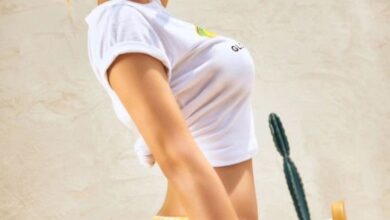Following Singles' Day, the 6.18 Shopping Festival Emerges as a Major Indicator of China's Online Consumption Trends
Enhancing Impact through Live Commerce Marketing and Offline Event Integration
Focus on Young Consumer Preferences for Smart Appliances and Health Products
The 6.18 Shopping Festival, a leading shopping event in China during the first half of the year, was held for about three weeks starting in early June.
According to KOTRA, the festival was led by the online platform JD.com, along with TAOBAO, TMALL, SUNING, and Pinduoduo, which participated en masse and conducted various promotional events, resulting in notable online and offline sales expansion. The consumption trend during the 6.18 period, centered around key consumer items and marketing strategies to stimulate consumption, can be analyzed, allowing for predictions of consumer types and promising items.
The 6.18 Shopping Festival, derived from the founding date of the Chinese online mall JD.COM, is China's version of Black Friday and the second-largest shopping event after the Singles' Day festival in the second half of the year.
Expanding Sales through Online Platform-Led Marketing
According to data released by the big data analytics firm SYNTUN, total online shopping sales in China during the 6.18 Shopping Festival in 2021 reached 578.48 billion yuan (approximately 101.8 trillion won), a 26.5% increase from the previous year. The top three platforms in terms of sales were TMALL, JD.com, and Pinduoduo, respectively. Notably, JD.com recorded its highest-ever cumulative order amount of 343.8 billion yuan from June 1 to June 18. Pinduoduo also saw a significant effect, with orders on June 18 alone surpassing 1.1 billion, a 300% increase compared to the same period last year.
This year's event was marked by active live commerce marketing to boost online sales. Sales from Wanghong broadcasts linked to the 6.18 promotional event amounted to 64.5 billion yuan (about 11.27 trillion won), accounting for 11% of total online sales. Douyin, China's leading video and broadcasting platform, participated in the 6.18 event for the first time and sold approximately 223,000 items on its platform from May 25 to June 18, with first-day live broadcast sales reaching 1.4 billion yuan (about 244.6 billion won). Kuaishou, another Wanghong broadcasting platform, recorded sales of 24.453 billion yuan (about 4.27 trillion won) for its top 100 hit products on June 16 alone, demonstrating successful sales.
Additionally, online platforms stimulated consumer spending by offering various online consumption coupons. TMALL provided VIP members with total discount vouchers of 580 yuan and also offered small coupons to general consumers to drive consumption. The JD platform contributed to active consumption expansion by distributing consumption coupons in cooperation with governments from 14 regions, including major cities like Shanghai, Tianjin, and Guangzhou. Bungeebao reported that consumption coupons stimulated potential consumption with a tenfold leverage effect and were extensively used for purchasing smart devices and appliances.
| Item | Transaction Amount (Billion Yuan) |
| Home Appliances | 824 |
| Mobile Phones | 742 |
| Clothing Accessories | 680 |
| Beauty Skincare | 512 |
| Shoes Bags | 462 |
| Furniture Interior Materials | 413 |
| Computers Office Supplies | 403 |
| Food Beverages | 319 |
| Baby Toys | 279 |
| Sports Outdoor | 228 |
Key Emerging Items and Consumption Trends
During the 2021 6·18 Shopping Festival, Tmall sold 250,000 brands and 13 million products, recording 2.5 times last year's figures. Among these, 44,000 were new brands, with 755 of them breaking the 1 million yuan sales mark on the first day of the event, indicating successful market entry for new brands. The sales ranking by item was as follows: home appliances, mobile phones, clothing accessories, beauty care, shoes bags, furniture interior materials, computers office supplies, food beverages, baby toys, and sports outdoor. Compared to the same period last year, sports outdoor items ranked first in terms of transaction growth rate, reflecting an increase in consumers enjoying outdoor activities amid COVID-19 restrictions.
Post-1995 consumers, the main customers of the 6·18 Shopping Festival, primarily purchased sports leisure goods and computers office supplies, while those born after 1985 bought baby and maternity products and health foods. Consumers born after 1975 mainly purchased alcohol and automotive products, indicating distinct consumption patterns across generations. According to China CCTV Finance, especially the post-1995 generation were the most active consumers, with increased spending power as they transition from students to working professionals, leading to higher purchases of smart home appliances like robot vacuums and dishwashers. During the 6·18 period on JD, a particular brand of dishwasher exceeded last year's daily sales in just 10 minutes, with some models seeing a 150% increase in sales over the previous year. Premium clothing stylers also saw a fivefold increase in sales compared to the same period last year, highlighting the demand for premium appliances.
Sales data also revealed an increased consumer interest in health. Sales of low-sugar rice cookers on JD exceeded the previous year's figures by 280%, and fruit vegetable cleaners, eye head massagers broke the previous year's daily sales volume within 5 minutes of going on sale. Tmall's medical bio sales pavilion reported a 114% increase in subscribers born in the 2000s compared to last year, with spending on health-related products doubling from the previous year. The most popular health products were beauty masks, contact lenses, and eye care products, while diet foods, enzymes, and nutritional cereals also received significant attention.
Beauty care was another item with notable sales increases. Beauty-related sales grew by 17.8% compared to last year, with global brands showing strong performance. In the skincare sector, brands from the USA, France, Japan, and Korea were among the top 10, while in the fragrance sector, Chinese brands such as Huaxizi and Colorkey ranked high, indicating an increase in preference for local brands. The trend of preferring local Chinese brands, known as Guochao, was evident during the 6·18 Shopping Festival, with 73% of the 236 brands that recorded over 100 million in sales on JD being Chinese.
The Rise of an Integrated Online-Offline Shopping Model
While the 6·18 Shopping Festival primarily focused on online sales, sales in the New Retail sector, which integrates online and offline, also recorded 17.8 billion yuan (approximately 3 trillion won), showing a joint increase. On the festival day, over 70 million consumers visited Alibaba's New Retail commercial districts, and various offline events were held regionally. Notably, about 200,000 people participated in Tmall's online-offline event at COCO Park in Shenzhen, and 160,000 visited Longzhimeng Shopping Plaza in Shanghai Zhongshan Park, successfully attracting visitors despite the offline consumption slump caused by COVID-19 risks.
Various Offline Events
The 6·18 Shopping Festival period overlapped with major holidays such as Dragon Boat Festival, Father's Day, Children's Day, and was linked with summer vacations and sports events, expanding offline sales of holiday gifts, travel leisure goods, alcohol, and men's products. As part of related event strategies, Suning held an offline event "Watching Football Matches in Stores" in over 700 offline stores, providing over 100,000 football fans with a one-stop service of watching games, dining, and shopping, capturing the attention of men typically less interested in online shopping with a successful offline marketing strategy.
In addition, JD launched the "Million Stores Discount Event" during the 6·18 period, drawing many consumers to offline stores, and the "6·18 Store Certification Shot" event, where taking photos of the event and posting them on SNS attracted considerable user interest and participation. Up to June 16, 2021, over 500 million people visited the event stores, leading to offline sales growth. Sales within the event pavilions operated by major brands like JD and Tmall increased, positively affecting the surrounding commercial districts.
Outlook and Implications
During the 6·18 period, China's biggest consumption-promoting event of the first half of the year, sales exceeded 300 billion yuan on the JD platform alone, benefiting from the association with major holidays like the Dragon Boat Festival and the addition of Wanghong and offline events. Major products included home appliances, sports leisure goods, and beauty health products, contributing to the revitalization of China's private economy in the first half of the year.
However, the presence of COVID-19 risks and incomplete recovery of consumption necessitate monitoring whether this year's economic growth targets can be achieved. Retail sales in May increased by 12.4% compared to the same month last year but were lower than the growth rate of 17.7% recorded the previous month, suggesting the June event's impact on the first half of the year's economic situation. A local cosmetics distributor mentioned participating in the 6·18 event since 2017 but acknowledged a significant drop in sales since last year compared to pre-COVID-19 levels, especially for cosmetics, highlighting the challenge of securing competitiveness through diversification of promotional channels and new marketing tools.
The continued Guochao trend also raises concerns about higher barriers for foreign brands entering China. Companies planning to enter the Chinese market should identify promising items, sell customized products reflecting individual consumption, and enhance marketing to increase brand awareness. Collaborating with local brands for cultural marketing could be a competitive strategy, and utilizing various promotional routes, including Wanghong broadcasting, could be effective. The upcoming Singles' Day consumption event in the second half is anticipated to further activate Chinese consumption, opening various opportunities for our companies.
Read more this category
 1. Doucan Unveils 2026 F/W Theme 'Still Elysium'
1. Doucan Unveils 2026 F/W Theme 'Still Elysium' 2. "Fur Outerwear: Elegance vs. Hip Mix"
2. "Fur Outerwear: Elegance vs. Hip Mix" 3. "Same Puffer, Different Vibe: Cha Jung-won vs. Jung Ryeo-won"
3. "Same Puffer, Different Vibe: Cha Jung-won vs. Jung Ryeo-won" 4. "Chic Black vs. Elegant White: Contrasting Coat Styles"
4. "Chic Black vs. Elegant White: Contrasting Coat Styles" 5. G-Dragon's Custom Chanel Look at 'Weber Mensch' Finale
5. G-Dragon's Custom Chanel Look at 'Weber Mensch' Finale 6. Han So-hee Stuns in Radiant White Dress
6. Han So-hee Stuns in Radiant White Dress 7. Hot Summer, Hot Body 'Soyou' Photoshoot
7. Hot Summer, Hot Body 'Soyou' Photoshoot

